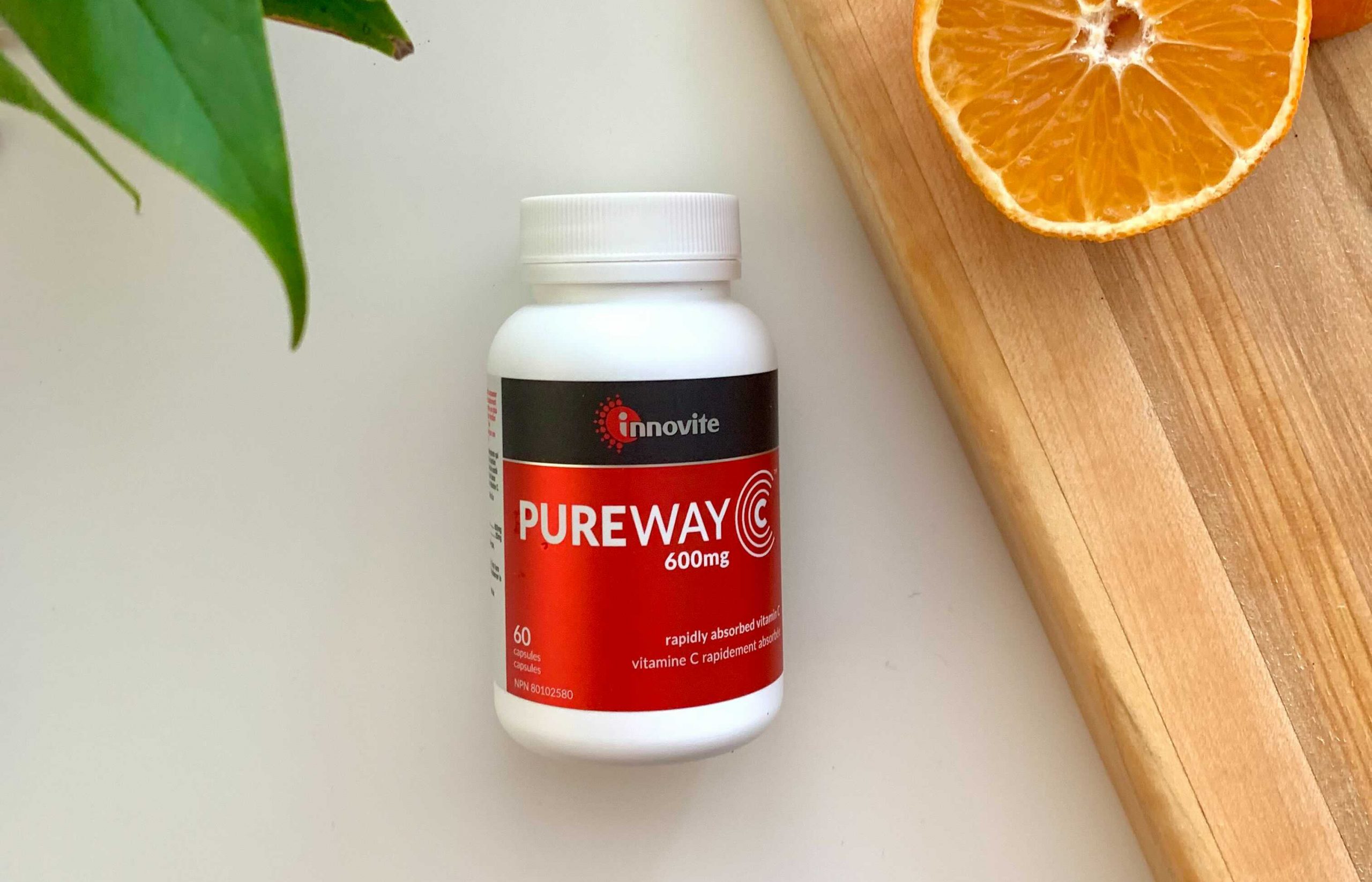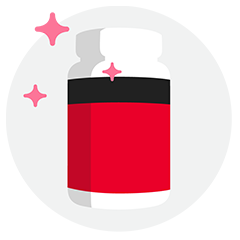Vitamin C that goes the distance
Created on: February 20, 2021

When you think of vitamin C, what’s your first impression? Most people think first and foremost of the immune system. While this is accurate, it’s also utilized in hundreds of reactions and processes in the body. That’s why it’s important to make sure you’re getting adequate levels of this important vitamin, and choose the right vitamin C supplement for the job.
Vitamin C is utilized for:
- Immune function
- Collagen production
- Antioxidant and anti-inflammatory action
- Stress and adrenal glands
- Neurotransmitter production
- Iron absorption
- Nerve regeneration
The discovery of vitamin C
Centuries ago, long haul sailors on ships had scarce access to fruits and vegetables, as they couldn’t be kept fresh onboard. This caused long term vitamin C deficiency, eventually leading to scurvy – a disease resulting in abnormal bleeding and bruising, skin discolouration, fatigue, depression and eventually death.
In 1747, James Lind experimented on scurvy patients aboard a British navy ship, using citrus to successfully cure their symptoms. It wasn’t until the 1930’s that ascorbic acid (vitamin C) was isolated from red paprika by Albert Szent-Györgyi.
Although it’s rare, there have been cases of scurvy in the 21st century. The good news is, there are ways to ensure you’re getting an adequate supply of vitamin C and avoid deficiency in its varying degrees of severity.
Choosing a vitamin C supplement
When choosing a vitamin C supplement, you want to aim for the best absorption and efficacy available. There are, quite literally, hundreds of vitamin C supplement options on the market. Liquid, capsule, tablet, chewable, ascorbic acid alone, paired with other supportive ingredients or sourced from fruit. How on earth do you choose?
Ascorbic acid is the most common form of vitamin C found on the shelf and occurs naturally in certain fruits and vegetables. On its own, ascorbic acid has a few downsides. It’s water soluble, so it quickly travels through the body and is excreted through the urine before it has a chance to work its magic. If you take too high a dose of plain ascorbic acid, you can typically expect loose bowels and an upset stomach. It needs a bit of support to be maximally useful.
Naturally-occurring vitamin C
Raw fruits and vegetables are chock full of vitamin C, but in nature, we would never find and eat plain ascorbic acid. It can be found in oranges, but they also have other beneficial supporting compounds. They contain citrus bioflavonoids, carotenoids fibre, vitamins, minerals and a small amount of fatty acids. These compounds work synergistically together to benefit the body.
PureWay C: What is it?
We were able to recreate this synergy in PureWay-C by adding fatty acids and citrus bioflavonoids for maximum absorption and retention. Vitamin C is able to stick around in the body significantly longer to it can successfully accomplish its goals.
Fatty acid formula
The fatty acid formula allows for maximum absorption by acting as a carrier. This helps to deliver ascorbic acid to the cell quickly and effectively.
Citrus bioflavonoids
Citrus bioflavonoids are compounds present in citrus fruits that give them their vibrant colour. Both citrus bioflavonoids and ascorbic acid act as beneficial antioxidants, protecting the body against damage from unstable molecules called free radicals.
Citrus bioflavonoids help to boost the antioxidant capacity of vitamin C. They continuously revive ascorbic acid after it donates electrons to unstable molecules, so it can keep doing what it does best.
How does PureWay-C compare?
PureWay-C was studied head to head with three other forms of vitamin C. It was able to outperform in terms of absorption, retention, antioxidant activity and wound healing!
Bonus: Even at 1000 mg, it’s gentler on the stomach than plain ascorbic acid.
Pairing ascorbic acid with citrus bioflavonoids and fatty acids translates to 233% better retention compared to isolated ascorbic acid. Higher retention rates mean it can stick around longer to benefit the body – and it does. It sustains the highest serum level in a 24-hour period, promotes nerve regeneration 12x more effectively, and shows higher antioxidant and anti-inflammatory action.
- Maximim absorption
- Higher retention
- Efficient and effective
- Easy on the stomach
PureWay-C is fastest out of the gate, and it goes the distance.
Capsules or tablets?
Capsules tend to be a bit easier to swallow, and break down faster in the digestive tract. If you have difficult swallowing capsules, you can pop it open and add it to water.
PureWay-C 1000 mg Tablet
At 1000 mg per tablet, this is a great dose for daily and acute immune care. It’s also easy to cut in half or even into quarters to modify the dose. If you’re wondering what your daily dose of vitamin C should be, talk to your healthcare practitioner
Sources
- Dietary Reference Intakes
- James Lind: The man who helped cure scurvy with lemons
- Vitamin C for preventing and treating the common cold
- Avast! Scurvy is still a health issue in the 21st century
- The neuropsychiatric effects of vitamin C deficiency: a systematic review
- Effect of vitamin C on inflammation and metabolic markers in hypersensitive and/or diabetic obese adults: a randomized controlled trial
- Adrenal Glands
- Effect of low dose vitamin C on public speaking stress during group presentation
- A novel vitamin C preparation enhances neurite formation and fibroblast adhesion and reduces xenobiotic-induced T-cell hyperactivation
- Vitamin C: an essential “stress hormone” during sepsis
- Vitamin C: Stress Buster
- Vitamin C-lipid metabolites: uptake and retention and effect on plasma C-reactive protein and oxidized LDL levels in healthy volunteers






